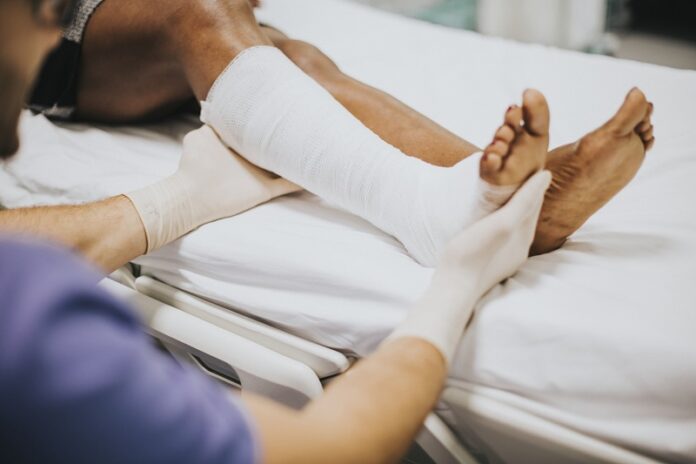
Expert witnesses are essential for the development of personal injury cases as they contribute specialized knowledge and offer expert opinions that aid the court in appreciating complex matters connected with the case. These people are recognized experts in their separate professions and, therefore, are consulted in the court to give unbiased and well-informed evidence based on their experience.
Personal injury cases will often feature expert witnesses from disciplines such as: medical experts, accident reconstructionists, engineers, etc. Even experts in forensic science or economics may be relevant in the matter. Witness accounts can be pivotal in helping the court determine which party is liable for damages and the appropriate compensation amount. The testimony provides crucial evidence that guides the court’s decision-making when assigning fault and monetary awards. Reliable first-hand accounts from witnesses often sway rulings on culpability and restitution in favor of one side over the other.
The best car accident lawyer in houston tx explains that the experts are rarely hired by both the plaintiff and the defendant to present their expert opinions, review the evidence, and submit it conveniently and persuasively. This proof may deal with the crucial aspects of the case, including the injury mechanism, its severity, cause, the nature of the event, and the outcome from the plaintiff’s long-term perspective.
The Role of Expert Witnesses
Experts occupy a crucial role in the judicial process, especially where personal injuries are concerned, in that they provide the court with information about specialized knowledge and opinions that will enable the court to understand complex issues.
Their role can be complex and includes the following key aspects. Their role can be multifaceted and includes the following key aspects:
- An expert witness is a person who has special knowledge, training, and experience in a particular area of expertise that is relevant to the case being tried. They have the knowledge and experience that is much deeper than that of an average person and even of a professional in the same field.
- Among other things, they have the duty of simplifying and explaining the technical or complex explanations in a way that the judge, the jury, and other parties present in the case can easily understand. They provide a narrative that is easier to understand and context that aids the court in arriving at an informed decision.
- The expert witnesses review and assess the relevant evidence in their field of expertise, such as medical records, accident reports, forensic data, or financial documents. They do this by using their background knowledge and skills to interpret this evidence and draw conclusions that uphold their views.
- Expert witnesses may be summoned to give an account of the matters they have examined during trial proceedings. They have to undergo cross-examination by the counsel from the opposite side when their credibility and the reliability of their opinions may be questioned.
- Beyond being only witnesses, experts may also offer advice to the legal team where necessary on issues that are related to their field of expertise, helping attorneys understand difficult concepts and handle technical aspects of the case.
Personal Injury Cases and Their Different Expert Witnesses Types
- Medical professionals, like doctors, surgeons, or specialists, give their opinion about the nature and extent of the injuries by the plaintiff, the prognosis for recovery, the necessary medical treatments, and the long-term consequences of the injuries.
- Experts in accident reconstruction apply scientific principles and engineering approaches to understand the conditions of the accident and explain factors such as car speeds, points of impact, and other contributing factors to the collision.
- Analyzing the physical evidence at the crash scene, such as tire marks, damage on the vehicle, or biological samples, is used by forensic experts to recreate the accident and identify the party responsible.
- Financial experts convert the non-financial harm which is suffered by the plaintiff into monetary terms such as past and future medical expenses, loss of wages or earning capacity, and more, which facilitates the conversion of damages for the plaintiff into monetary terms.
- Some experts conduct an assessment of the plaintiff’s work capacity and his/her earning potential in future, taking into account factors like physical abilities, skills, and job market conditions, to forecast the future earning capacity.
How Expert Witnesses Can Enhance Your Case?
The experts who will testify will add professionalism and credibility to the case because they are specialists with the relevant qualifications, with their authoritative opinions viewed seriously by the judge and the jury.
In your case the vital expert to hold on to is the expert witness. This person will help the jury to get the grasp of the technical or the scientific issues in a manner that is easy for them to follow. The expert witness explains the important issues, he or she will help the jury to see the main facts that must be taken into consideration and the basic principles of the case.
Experts, on the other hand, will be able to give answers with great precision as far as the issue of liability and damages is concerned, and this will simplify the work of the jury who will connect the actions or carelessness of the defendant to the injuries of the plaintiff and the damage he or she has suffered.
Conclusion
In the end, expert witnesses form a significant part of personal injury cases because they give the court not only specialized knowledge but also their opinion, which helps the court to understand the complex issues and make fair judgments. The nature of their knowledge and evidence can significantly influence the verdict. Thus, they are proven to be irreplaceable instruments of the court system.










